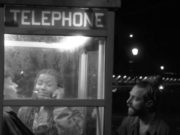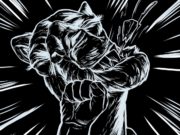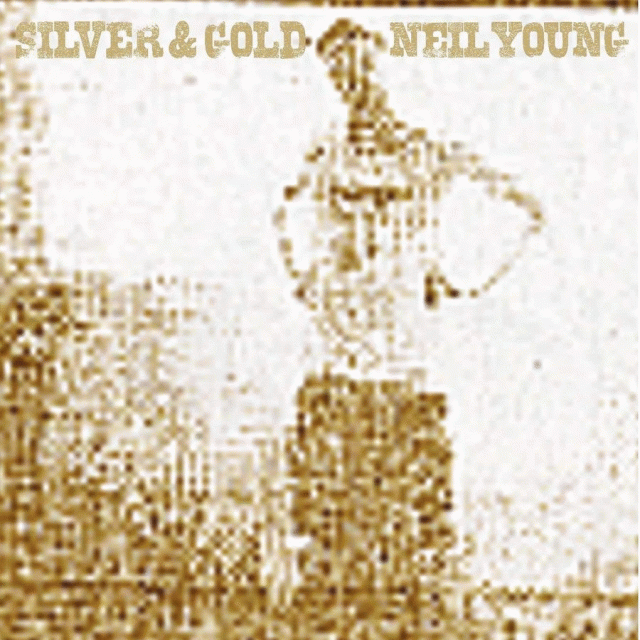Two decades ago, new albums from Neil Young, Pink Floyd and others were spinning away in my portable CD player. Here’s what I had to say about them back then (with some minor editing):
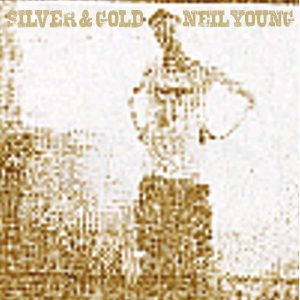 Neil Young
Neil Young
Silver & Gold
It’s no wonder Neil Young is in a nostalgic mood on his new album Silver & Gold. The living legend has, after all, spent a tremendous amount of time reconnecting with his past lately. For several years now, he’s been toiling away on a mammoth series of box sets chronicling his entire career (the first of four instalments — an eight-CD, two-DVD box set — is due for Christmas). Meanwhile, he’s been working on a Buffalo Springfield box with Stephen Stills. That, of course, led to the latest Crosby, Stills, Nash & Young reunion, which spawned last year’s Looking Forward CD (whose four Young tunes had originally been slated for this disc) and their just-completed tour. So if Neil’s in a reflective frame of mind here, well, he comes by it honestly. And heaven knows if anybody’s earned the right to take a good long look in the mirror and indulge in that mixture of pride, sorrow and regret we all feel with the passage of time, it’s restless workaholic Neil.
Of course, when he does it, it tends to sound a whole lot prettier than when you or I do it. “Working hard, every day … Never notice how the time slips away,” he observes on Silver & Gold‘s title track, a gentle declaration of love over materialism that Young first penned in 1982 and has performed live for years. Played here as a stripped-down solo acoustic folk ballad, its forthright sentiment serves as a perfect thread connecting the album’s sombre, introspective country-folk tales about distance and connection. “People come, seasons go,” he says. “But we got something that’ll never grow old / It’s better than silver and gold.” That sentiment is carried over into the back-porch country-folk ballad Daddy Went Walkin’, a downbeat ode to Young’s father and parenthood in general; The Great Divide, a quiet rumination on lovers separated by an emotional gulf; Good to See You, a country-pop charmer about coming home from tour; Razor Love, another ’80s-vintage ballad about “love that cuts clean through,” and Distant Camera, in which Young concludes that “If life is a photograph fading in the mirror, all I want is a song of love to sing to you.”
Well, maybe that’s not quite all he wants, judging by Buffalo Springfield Again, his gently rocking and surprisingly moving tribute to the seminal outfit that broke up in 1968. “I’d like to see those guys again and give it a shot,” he admits. “Maybe now we can show the world what we got … But I’d just like to play for the fun we had.” Looks like Neil isn’t quite ready to let go of his past just yet.
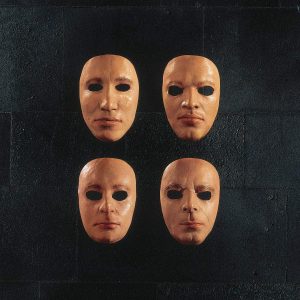 Pink Floyd
Pink Floyd
Is There Anybody out There: The Wall Live 1980-81
For sheer rock-opera bombast and spectacle, you can’t top Pink Floyd’s The Wall. A metaphor for leader Roger Waters’ isolation and alienation from his audience — inspired by an incident in Montreal when he spat on an overzealous fan — the original staging of The Wall featured arena rock’s most elaborate show: Roadies built a giant brick edifice between the band and crowd, then toppled it at the set’s climax. They only mounted the show about 30 times, and at the time it must have been something to see. It isn’t quite as much to hear. This historical two-CD set, assembled from several shows during the tour, comes off as a triumph of style over substance — gorgeous sound, beautiful packaging, two 28-page booklets, colour artwork, lotsa photos, behind-the-scenes info, essays from the band and key artists, yadda yadda yadda. Even so, without the groundbreaking visuals to hold your attention and connect you to the proceedings, it’s just another so-so live album.
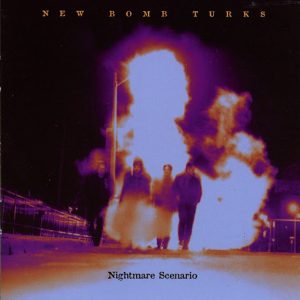 New Bomb Turks
New Bomb Turks
Nightmare Scenario
Once a punk, always a punk. After flirting with everything from R&B to C&W on their last disc At Rope’s End, Ohio’s New Bomb Turks return to their snaggle-toothed first mistress — hard-driving, no-holds-barred American punk rock — for their seventh studio album Nightmare Scenario. With the guitar jive of Chuck Berry, the blinding ferocity of Motörhead and the snot of The Dead Boys, singer Eric Davidson and his backing trio fire off a dozen grenades of authentic old-school three-chord riff-rock in little over a half-hour, with barely a pause for breath between tracks. Pity they didn’t pause long enough to tweak the sound a bit; the two-tin-cans-and-a-string production doesn’t come close to reproducing the band’s massive live attack. Still, you can’t quibble with the four-on-the-floor intensity of tunes like opening salvo Point to a Point Blank. “I dare you to hum to this,” challenges Davidson. He ain’t foolin.’
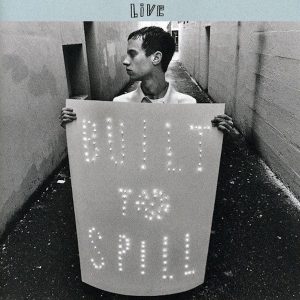 Built to Spill
Built to Spill
Live
Are the pictures of dishwashers, video store clerks and janitors that adorn the booklet of this live CD Built to Spill leader Doug Martsch’s way of telling us that rock ’n’ roll is just another soul-sucking, low-paying job? Even if it is, nobody can accuse this stellar Boise trio of being shiftless. Thanks to his plaintive yowl and loose, loping guitar lines, Martsch is inevitably compared to Neil Young. Here he and his band come on like a hurricane, whipping up swirling cyclones of sound that carry you away on their ragged wings while his vocals rise above the maelstrom like a cry for help. And while Live’s set list draws from their four studio albums, including last year’s critically worshipped Keep it Like a Secret, he never does it better than on his awe-inspiring cover of Young’s Cortez the Killer — a 20-minute epic of gnashing, brittle intensity and searing beauty that even gives Neil’s version a run for the money. Whatever Martsch is getting paid, he deserves a raise for that one.
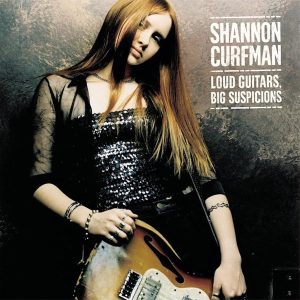 Shannon Curfman
Shannon Curfman
Loud Guitars, Big Suspicions
Teen blues-rock phenom Jonny Lang says he’s scared of Shannon Curfman. He oughta be. Like Lang, she was born in Fargo, became a ridiculously talented blues guitarist at a ridiculously tender age, then moved to Minneapolis and released an album before being old enough to drive. But while Lang put out his debut at 15, this first album from Curfman was first released in 1998 — when she was 13. Judging by these tracks, that’s 13 going on 31 — with her brassy hair and attitude to match and a funky, soulful delivery, Curfman comes off like a Bonnie Raitt-in-training, with touches of Melissa Etheridge’s roots-pop thrown in for good measure. Sure, like any teen prodigy, sometimes she has more technique than soul — but when she plays, she has no trouble holding her own, even against Lang, who guests on three songs here and co-writes another. He obviously knows what to do when you can’t beat ’em. Be afraid, Jonny; be very afraid.
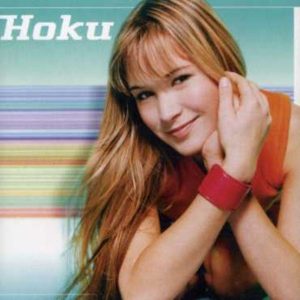 Hoku
Hoku
Hoku
This Hawaiian bubble-popster’s last name is Ho — as in Hawaiian lounge balladeer Don (Tiny Bubbles) Ho. After years of singing backup in daddy’s act, 17-year-old Hoku tosses her lei into the teen-beat arena with this 11-track debut offering of peppy, girl-power pop. When she keeps things light and frothy — like on cutie-pie debut single Another Dumb Blonde — Hoku is harmless enough. But all too often, she tackles the sort of treacly, miss-you ballads that not only kill the disc’s sugary buzz, but also make her limited vocal abilities and range painfully clear. To put it another way, Hoku’s disc is an unsuccessful blend of teeny bubbles ’n’ the whine.
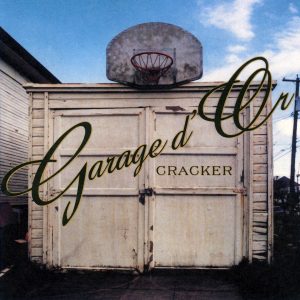 Cracker
Cracker
Garage d’Or
Like most critically beloved outfits, twisted alt-roots rockers Cracker probably have more four-star reviews than gold records. Maybe this top-notch, two-CD retrospective anchored by tunes from their four studio albums can help tip the scales in the right direction. Former Camper van Beethoven leader David Lowery’s seamless quilt of Stonesy country-honk, alt-rock surliness, Little Feat quirk and white-boy soul are the four-stroke engine that drives shoulda-been-Top 40-hits like Low, their version of The Flamin’ Groovies’ Shake Some Action, and the ticked-off jangle of Teen Angst, with its brilliantly snarky chorus of, “What the world needs now is another folk singer / Like I need a hole in my head.” Along with three dark and demented new tracks, the second disc offers the expected collection of live tracks, oddities and B-sides, from the guitar twang of Surfbilly to the beautifully bleak balladry of The Carpenters’ Rainy Days and Mondays. If you want to treat yourself to some of the best and most underappreciated music of the decade, here it is. If not, oh well — at least Lowery and co. have another press clipping.
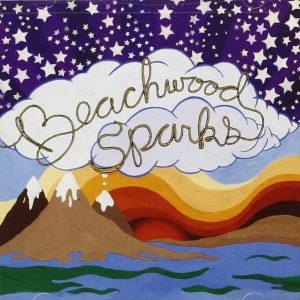 Beachwood Sparks
Beachwood Sparks
Beachwood Sparks
Sometimes, you can hear a single lick of music and tell instantly where a band is from. Take Beachwood Sparks; five seconds into the jangling country-rock bounce and psychedelic steel-guitar shimmer of Desert Rose, the opening track on their splendid debut disc, and you know these space cowboys are from sunny Southern California. But not the SoCal of skate punk and power-pop; no, these boys are from the ’60s version of L.A. — the home of Buffalo Springfield, The Byrds, Gram Parsons and The Flying Burrito Brothers. You can hear the echoes in the warm, desert-breeze vocals and folky, finger-picked guitars of tracks like Silver Morning After; in the loping rhythms and fringe-vest acid-country of Sister Rose; and even in the sparkling Beach Boy harmonies and ba-ba-bah backup vocals of This is What it Feels Like. Sure, you know exactly where they’re coming from and where they’ve been —but you’ll still love the places they take you.
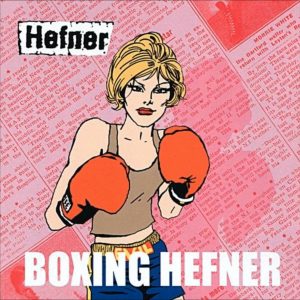 Hefner
Hefner
Boxing Hefner
Put it down to their blue-collar British work ethic. Not only have this quirky London pop foursome issued two albums in as many years, but in that same short time they’ve also issued singles and made enough British radio-show appearances to put together an entirely new disc of songs about love, liquor and loneliness. Some are rare, unreleased versions; some are reworkings of previously available material; some are completely new. All bear the unmistakable stamp of singer/songwriter Darren Haymam’s unique style, which inhabits the middle ground between the jittery, caffeinated folk of Violent Femmes, the bittersweet twee pop of Ray Davies and the offkilter charm of Jonathan Richman — whose To Hide a Little Thought the boys even cover here. OK, none of these songs are gonna be top 10 hits, but they’re knockouts just the same.
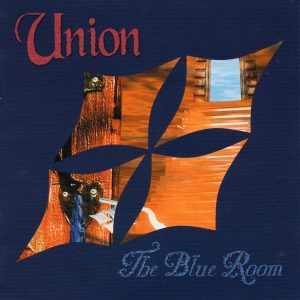 Union
Union
The Blue Room
Half this hard rock foursome will be familiar to diehard metal fans everywhere — former KISS guitarist Bruce Kulick, and singer John Corabi, who spent about 15 minutes in Mötley Crüe a few years back. A third might ring a bell with Winnipeggers — drummer Brent Fitz, who played with Kenny Shields before heading to L.A. a few years ago in pursuit of rock stardom. Well, he’s definitely keeping the right company. But the band’s sophomore album The Blue Room isn’t exactly the stuff that rock dreams are made of. For a band boasting former members of two of rock’s most hedonistic outfits, Union’s tunes are surprisingly bland, unadventurous affairs that trot out the same guitar riffs, power ballads and uninspired lyrics you’ve heard time and again. Even they can’t seem to agree on a comfortable style — most of these 10 tracks are too heavy for the pop charts but too light for the studs-’n’-metal crowd. Like many bands led by former hired guns, Union need a strong boss to bring out their best work.
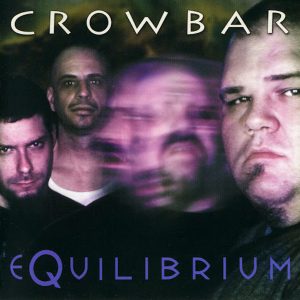 Crowbar
Crowbar
Equilibrium
No, not that Crowbar. This isn’t the ’70s blues-rock outfit that wrote Oh What a Feeling. That is, not unless they moved to Louisiana, shaved about 20 years off, pierced various body parts and became a gloomy sludge-metal outfit somewhere between Type O Negative, The Melvins and Pantera on serious barbiturates. Like their previous five albums, Equilibrium is a deliberate, uncompromising set of primordial metal, with drums that plod like stomping dinosaurs, guitars that ooze molten magma and a singer who bellows like a mammoth with a migraine trying to free himself from a tar pit — especially on their punishing, slow-death cover of Dream Weaver. Yes, that Dream Weaver — Gary Wright’s cheesy ’70s synth classic, rendered here as a nightmare-inducing slab of swirling, howling menace. What a rush.
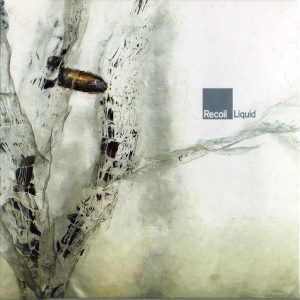 Recoil
Recoil
Liquid
Recoil is the brainchild of former Depeche Mode programmer and keyboardist Alan Wilder. Now that you think you know what to expect, forget it. You won’t hear any melodramatic dance-pop on his fourth solo CD Liquid. Listen carefully, though, and you will hear some of the most seriously twisted electronica this side of Trent Reznor’s dungeon. Like Nine Inch Nails, Wilder’s art of darkness merges sinister robo-grooves that ooze and turn like worms under your skin, cinematic soundscapes loaded with everything from deep, wet funk to dusty Arabic swirls — and to top it all off, lyrics of sexual perversion (Breath Control), insatiable desire (Want) and plane crashes (Black Box Pt. 1 & 2), delivered by the likes of demented diva Diamanda Galas and former Golden Palomino Nicole Blackman. Recoil is dark, decadent and delicious — and packs one helluva punch.
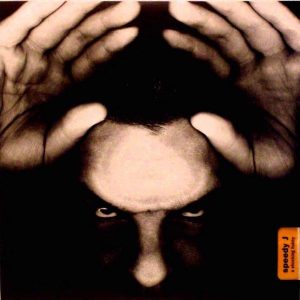 Speedy J
Speedy J
A Shocking Hobby
Think of Rotterdam’s Speedy J as the anti-Fatboy Slim. Former DJ Jochem Papp lost interest in the mindless groove of the dance floor; now the only booty he wants to shake up is the one between your ears. And he accomplishes that with ease on his fourth CD A Shocking Hobby. With a pallette emphasizing chrome, black and grey — the subterranean buzzing of synths, the coldly gentle wash of strings, the punch-press industrial grooves of the beat boxes — Papp fashions complex, swirling routines of sinister assembly-line techno-funk that encompass the hard-ambient brittlenss of Aphex Twin and the kinder, hip-hop-flavour of µ-ziq — and somehow end up sounding sorta like Nine Inch Nails minus Trent Reznor’s incessant whining. It would make the perfect soundtrack for a grisly horror movie about underground cannibal mutants. I’m pretty sure nobody has ever said that about Fatboy Slim.
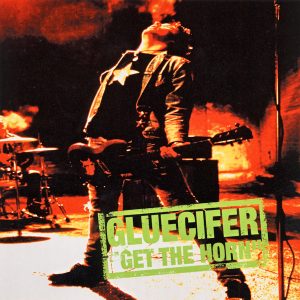 Gluecifer
Gluecifer
Get the Horn
What do you get when you cross AC/DC, Aerosmith, Rocket From the Crypt and a big ol’ tube of Lepage’s model adhesive? Well, if you do it right, you end up with Gluecifer, a quintet of self-proclaimed former Oslo sniffheads who obviously took their heads out of the paper bag long enough to become the nastiest, sweatiest, black-leather-and-sunglass-wearingest riff-rock mob since their equally destructive pals The Hellacopters. This six-track EP, a teaser for an album due later this spring, collects the best tracks from a handful of their recent European singles — 25 minutes of Marshall-overload crunch, squealing feedback, wah-wah solos, chugging bass lines and songs about manly living, rocking, foul moods, rocking, paranoia and, oh yeah, rocking, all delivered with the relentless fury of a savagely methodical ass-kicking. The best you can hope for it to take it like a man without whimpering.
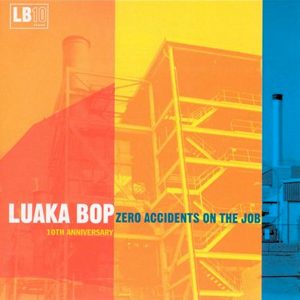 Zero Accidents on the Job
Zero Accidents on the Job
Various Artists
Double-disc label samplers like this one from former Talking Head David Byrne’s world-pop label Luaka Bop usually save you money. But don’t bet on it this time. After you soak up this international border-crossing menu of genre-crossing artists — commercial popsters like Cornershop (Brimful of Asha), absurd experimentalists like Tom Zé and Os Mutantes, global hip-hoppers like Zap Mama and twisted roots artists like Jim White, almost all of whom share their boss Byrne’s affection for off-kilter, free-wheeling musical adventure — you’ll be back at the CD store, maxing out your credit card on the label’s back catalog. And chances are you’ll be in line behind me.
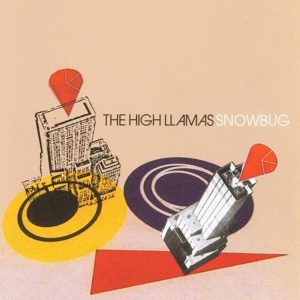 High Llamas
High Llamas
Snowbug
Despite the plural in the band name and the presence of four names in the liner notes, High Llamas is and always has been essentially a one-man operation — the brainchild of former Microdisney singer/guitarist Sean O’Hagan. But even high priest O’Hagan worships at the feet of another more powerful idol: Brian Wilson. Each of the Llamas’ albums has paid homage to the sunshiney pop and imaginative orchestrations of the erstwhile Beach Boy. Far be it from Snowbug, their fifth outing, to break that streak. With 13 tracks of gentle ’60s pop laced with sugary melodies, Bacharach-style harmonies, squiggly strings, sweet synths and overdub upon overdub of unusual instruments (banjos, marimbas, you name it), this is a better Wilson album than the man himself has made in years. Still, when you get right down to it, Snowbug is really just the work of an incredibly talented copycat.







